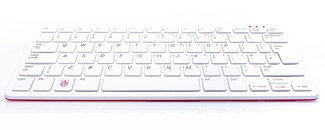The Raspberry Pi Foundation have recently released the Raspberry Pi 400 keyboard computer based on the Raspberry Pi 4 and Raspberry Pi keyboard. The new computer is a modern take on the home computers of the 1980s such as the BBC Micro, ZX Spectrum, and Commodore Amiga with the computer being fully integrated within the keyboard. The computer features a custom layout Raspberry Pi 4 4 GB clocked at 1.8 GHz with the ability for significant overclocks thanks to the large integrated heatsink.
The new product is targeted towards cost-conscious consumers and students who require a basic computer. The computer is available in a number of different versions including English (UK and US), French, Italian, German, and Spanish keyboard layouts. The Raspberry Pi 400 is now available for 70 USD for the computer on its own, or 100 USD for a ready-to-go kit with power supply, mouse, SD card, HDMI cable, and official Raspberry Pi Beginner's Guide.




Announcement Video
View at TechPowerUp Main Site
The new product is targeted towards cost-conscious consumers and students who require a basic computer. The computer is available in a number of different versions including English (UK and US), French, Italian, German, and Spanish keyboard layouts. The Raspberry Pi 400 is now available for 70 USD for the computer on its own, or 100 USD for a ready-to-go kit with power supply, mouse, SD card, HDMI cable, and official Raspberry Pi Beginner's Guide.




Announcement Video
View at TechPowerUp Main Site



 .
.



